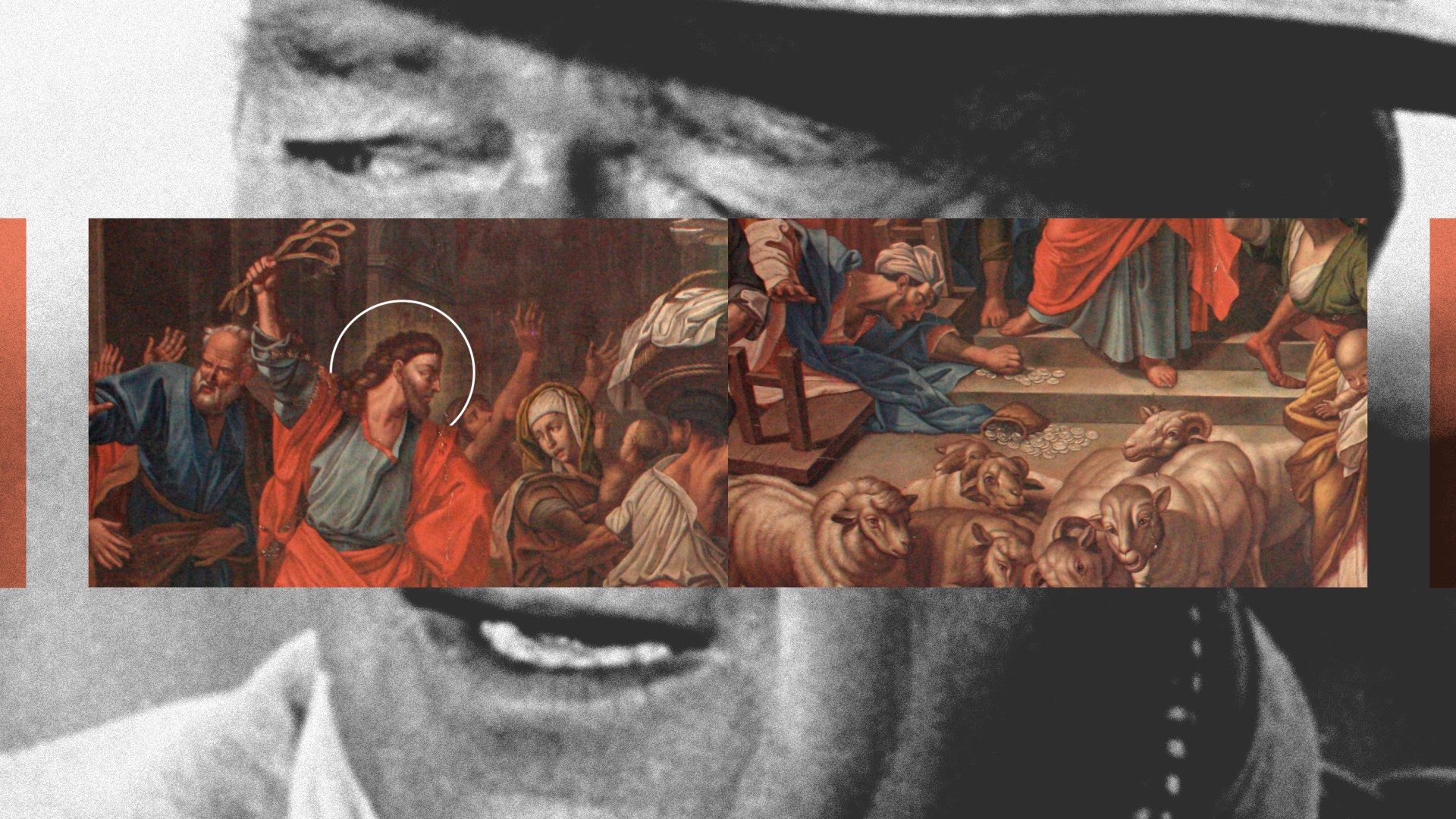Amid the meltdown within evangelical Christianity, some are warning against the dangers of the jeremiad. A few of these critiques are prompted by books like Kristin Kobes Du Mez’s Jesus and John Wayne, which argues that evangelicalism’s problems are deeper than we think. Usually, though, the jeremiads against jeremiads are directed toward those who are doctrinally fully within the conservative evangelical camp and are warning that something is awfully awry.
It’s confusing to see these anti-jeremiad arguments coming from people who have endorsed jeremiads about the cheap grace of evangelical conversionism contradicting “the gospel according to Jesus” or how evangelical flirtations with relativism and pragmatism would leave “no place for truth.” These older jeremiads were timely and necessary, even if one didn’t agree with every point. But they were certainly jeremiads.
It’s also baffling to be told that speaking about dangers and errors is a failure of love for one’s fellow evangelicals. Years ago I might have expected such a line from the folks who repeat, “Doctrine divides and love unites” and who look for ways to “affirm” everything. But those worried now about jeremiads are not Episcopalians but Puritans—the very ones who have insisted, rightly, that truth matters and who have worked to shore up doctrinal clarity even on issues where evangelicals disagree (such as predestination or women in ministry).
A lack of reckoning can’t ever lead to repentance, back to the signposts pointing the way back home.
Likewise, the people issuing anti-jeremiad jeremiads continue to denounce dangers and errors in the outside culture. They want jeremiads against the abortion culture or sexual anarchy or New Atheism or gender ideology. Oddly, most of those criticized for jeremiads have always been just as clear on those matters as on racial injustice or sexual abuse cover-ups or political captivity. In fact, they’re often clearer on those issues than those who seem to want culture wars (at least culture wars that don’t affect our kinds of churches).
We should not critique evangelicalism (at least not in public), we are told, because to do so would be to curry favor with “the elites.” But what curries favor: Saying to the world that evangelical Christianity is true and beautiful enough that we shouldn’t betray our own stated ideals? Or saying to populist masses (and donors) that we will speak loudly on the issues you agree with us on and remain silent or dismiss as distractions those you don’t?
Of the evangelicals issuing jeremiads, I would be hard-pressed to think of one who has spent any time at all at the “New York cocktail parties” so often imagined. Very many, though, have been cut off by old friends and allies. That’s not because they are too harsh or truthful, but because they direct that honesty to the issues and power centers of which we are not allowed to speak.
Nonetheless, just as those of us who are conservative evangelicals can learn from Jesus and John Wayne and similar critiques, so we can learn from those who warn against jeremiads. The apostle Paul warns against replacing the task of building up with the job of tearing down (2 Cor. 13:10), even as he called us to tear down strongholds raised against the knowledge of God (2 Cor. 10:4–5).
The word jeremiad is, of course, rooted in Jeremiah. The prophet warned that the people of God could not count on the presence of the temple to protect them from God’s judgment on the rot within (Jer. 7). They might tell Jeremiah to shut up (You’re only helping the Babylonians!) or find those who would say, “‘Peace, peace,’ when there is no peace” (6:14; 11:21, ESV throughout). But that lack of reckoning can’t ever lead to repentance, back to the signposts pointing the way back home (31:21).
Still, honesty is not enough. Heartache does not a reformation make. The same voice who refused to call doom “security” or idolatry “faithfulness” also saw a God who has a future for his people, a future that is more “Good News” than the word evangelical could ever fully convey. He pictured a day in which the people of God “shall come together, weeping as they come, and they shall seek the Lord their God” (50:4).
Weeping isn’t forever about heartbreak, though that’s where it must begin. Weeping of grief can turn to the weeping of joy—joy of a hope and a future guaranteed.
And that’s a jeremiad too.










